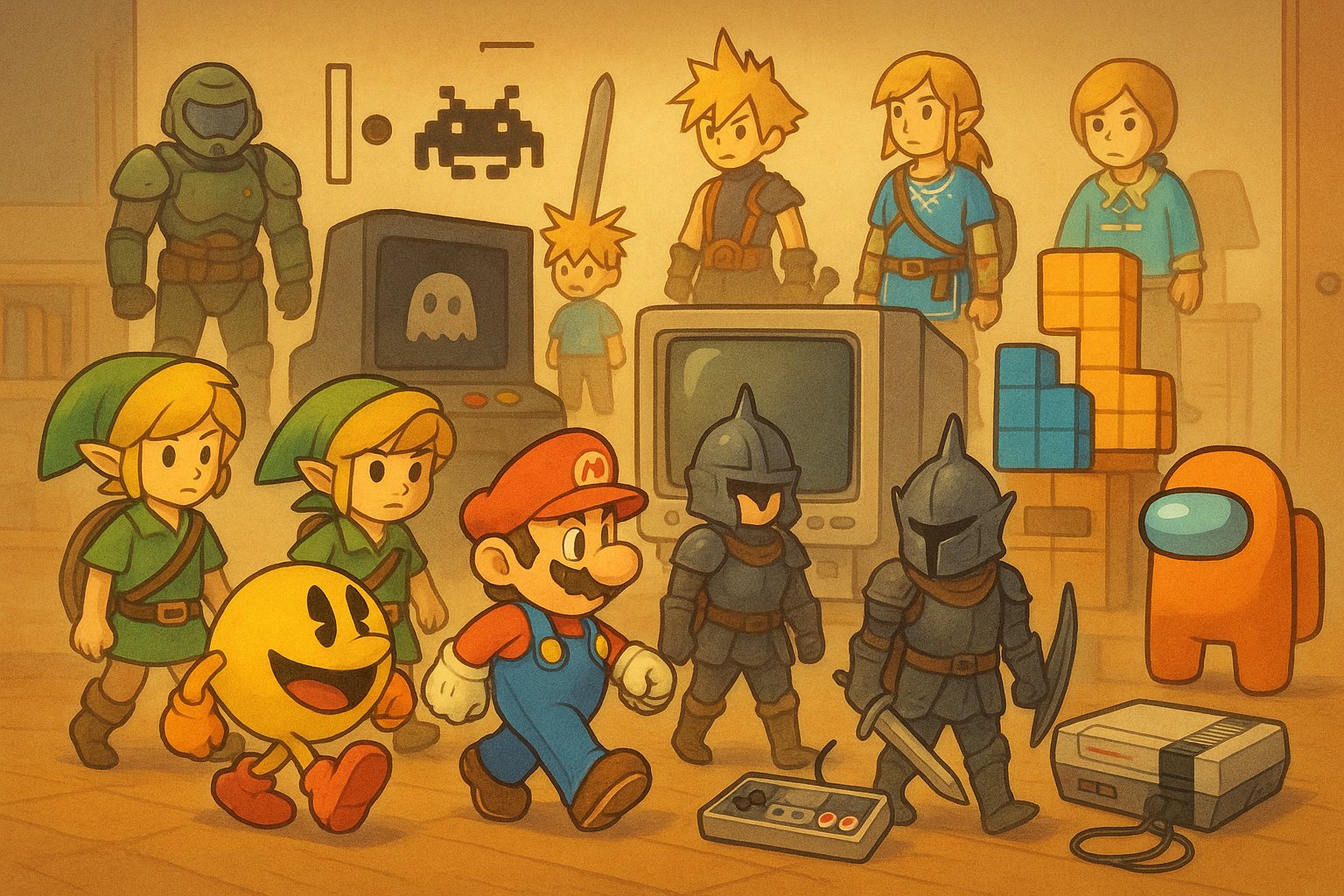
Bus School Park Driver
Popular Games
Last Played

Video games have gone far beyond entertainment, they've shaped pop culture, technology, and how people connect across the world. Over the decades, some titles have defined genres, inspired innovation, and built billion-dollar franchises. This list covers the most influential video games of all time and how they changed gaming forever.
Pong is where it all started. It introduced millions to interactive entertainment and laid the groundwork for the arcade boom. Its simple design helped video games become a household concept.
Tetris showed the power of addictive puzzle gameplay. Its simplicity, paired with increasing difficulty, made it a global success and one of the most recognized games ever made.
This platformer revived the gaming industry after the 1983 crash. Its level design, tight controls, and character appeal made it a model for generations of developers.
Zelda introduced open-world adventure and puzzle-solving. It gave players freedom to explore, setting the template for modern action-adventure games.
Doom revolutionized first-person shooters with fast action and 3D graphics. It also pioneered user mods and multiplayer gaming, fueling online communities for decades.
These RPGs introduced monster collection and trading. Pokémon became a cultural movement, with global success across games, TV, and merchandise.
A turning point for JRPGs in the West, Final Fantasy VII combined cinematic storytelling with deep gameplay. Its emotional impact and 3D visuals changed the genre forever.
Half-Life delivered immersive storytelling directly through gameplay, no cutscenes. It raised expectations for narrative in first-person shooters and inspired countless titles.
This life simulator appealed to a new audience, especially non-traditional gamers. Its sandbox style and user-driven creativity influenced social games and simulations.
WoW took MMOs mainstream with accessible gameplay, massive online worlds, and strong community features. It defined the genre for years.
Minecraft offered limitless creativity in a blocky world. Its simple mechanics and modding freedom made it a global platform for education, design, and fun.
Dark Souls introduced high-stakes combat and minimal guidance. Its challenge, lore, and world design inspired the rise of “soulslike” games and a return to difficulty in modern gaming.
More than a game, Fortnite became a platform for social experiences. With battle royale gameplay, seasonal updates, and live events, it changed how games engage players long-term.
Among Us brought social deduction gaming to the mainstream. Its success during the pandemic highlighted the power of simple mechanics and community-driven fun.
Breath of the Wild redefined open-world design. It emphasized freedom, experimentation, and exploration, inspiring many games across genres.
These games didn’t just entertain, they shaped the future of gaming. Their mechanics, stories, and cultural impact influenced what came after and will continue to inspire new generations of developers and players.